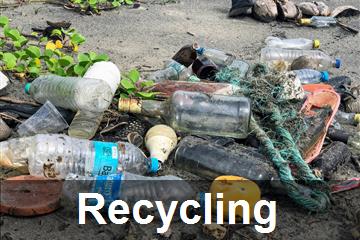
06 nov 2024
In 2023, Conai's recycling and recovery activities in Italy generated a business volume of €15.5 billion, contributing €3.5 billion to the national GDP and supporting 35, 800 jobs.
The study by The European House Ambrosetti highlights the strategic role of Conai in promoting circular economy, reducing dependency on virgin materials, and enhancing competitiveness.
Italy leads in packaging waste management, recycling 75.3% of its packaging waste.
Conai aims for a 50% plastic recycling rate by 2024, ahead of the EU's 2025 target.
Challenges include the economic recognition of recycled materials and regulatory asymmetries.
Conai also introduces the ReMade Foundation for certification of recycled content.

In 2023, the recycling and recovery activities led by Conai, Italy's national packaging consortium, resulted in a business turnover of €15.5 billion.
This initiative contributed €3.5 billion to the national GDP and supported 35, 800 jobs across the industrial and service sectors.
These figures are part of a study by The European House Ambrosetti, titled 'The Circular Economy of Packaging: A Value for the Country, ' presented at the Ecomondo fair in Rimini.
The study underscores the significant impact of Conai's activities on the Italian economy.
Conai's president, Ignazio Capuano, emphasizes the importance of the circular economy as a growing sector in Italy, highlighting its role in environmental protection, job creation, and economic growth.
The consortium's system helps preserve resources and significantly reduces reliance on virgin raw materials, enhancing the competitiveness of Italian businesses and mitigating market volatility.
Italy ranks high in Europe for effective packaging waste management, recycling 75.3% of its packaging waste in 2023.
Including energy recovery, the total reaches 85%. Conai aims to achieve a 50% recycling rate for plastics by 2024, a year ahead of the EU's 2025 target.
Packaging accounts for 8% of Italy's annual waste, yet it plays a crucial role in the country's circularity achievements, being a pioneer since the Ronchi Decree 27 years ago.
To further progress, the use of secondary raw materials should be encouraged, as virgin materials often have lower prices due to international market dynamics, lacking economic recognition for their environmental impact.
The regulatory framework supports the use of secondary raw materials, with the EU's SUP directive and the new Packaging Regulation (Ppwr) mandating minimum recycled content in new plastic packaging.
The SUP directive requires that by 2025, at least 25% of the weight of PET bottles sold annually in Italy be recycled PET, increasing to 30% by 2030.
Capuano warns of regulatory and market asymmetries due to cheaper imported recycled PET from non-EU countries, which could affect recycling rates.
The Ppwr expands the recycled material quota in new products from 2030, with a focus on reducing per capita packaging weight compared to 2018 levels by 5% in 2030, 10% in 2035, and 15% in 2040.
At Ecomondo, Conai will also officially present the ReMade Foundation, which owns Italy's first accredited certification scheme for verifying recycled content in products.
This certification ensures traceability from material origin to the certified finished product, addressing the Green Claims Directive and the Corporate Sustainability Reporting Directive requirements for large companies from 2025.
